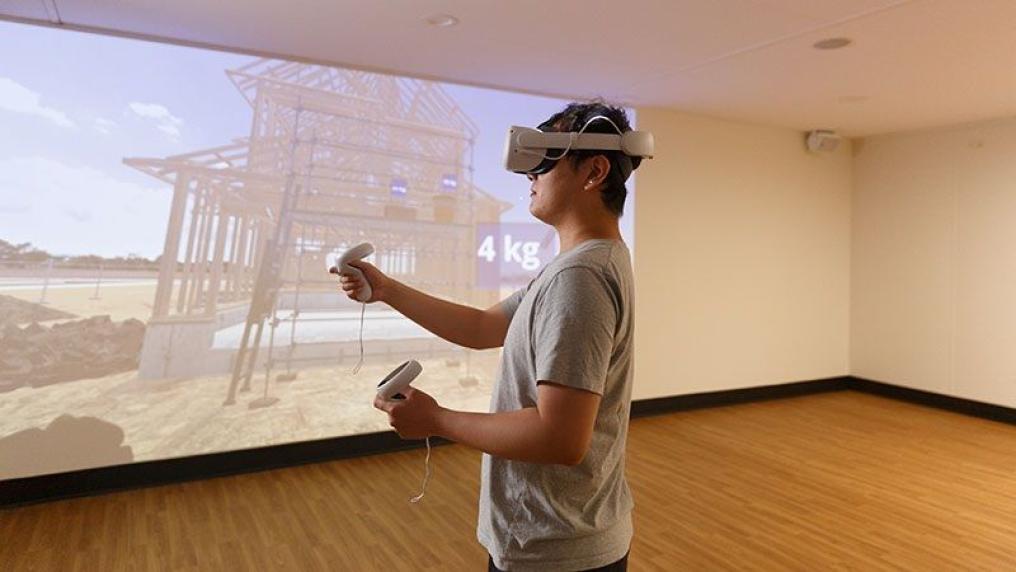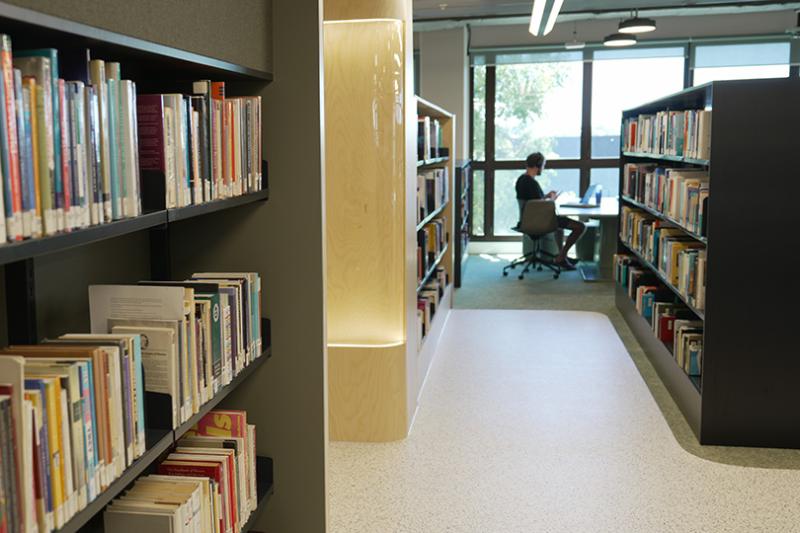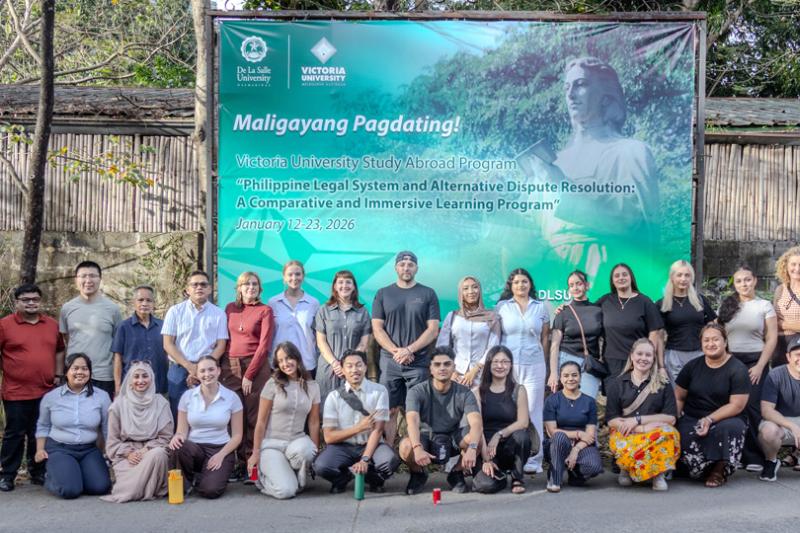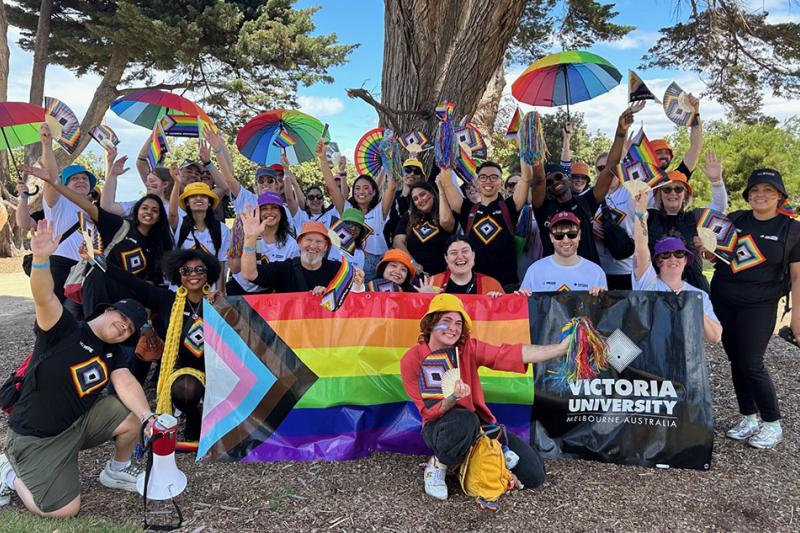Digital technologies for construction industry will improve safety & efficiency

Victoria University researchers have developed state-of-the-art technology that will take outdated aspects of Australia’s construction industry into a modern digital age.
Professor Zora Vrcelj (Head of VU’s Built Environment) and Professor Yuan Miao (Head of VU’s Information Technology) and their teams have combined high-tech tools with engineering and architecture to improve safety training in the construction profession – which has one of the highest rates of preventable accidents and deaths of any sector in Australia.
With the help of a construction simulator (COSI) with virtual reality (VR) at VU’s Werribee Campus, the researchers want to reduce workplace injuries and deaths. COSI’s fully-immersive VR experience allows trainees to use high-tech goggles and equipment to enter and explore a detailed simulation of a construction site to learn about safety – a big change from learning it through an instruction booklet or computer modules.
The simulator lets users learn to climb ladders, move equipment, work in a confined space, or walk along narrow scaffolding, without any real risk.
Already city councils, construction giants like Simonds Homes, and even the Victorian Building Authority – the state’s chief industry regulator – have expressed interest. Professor Vrcelj said the project would help modernise the construction industry, which is currently among the least digitised industries in Australia, leading to high rates of worksite injuries, a lack of quality control and inefficiencies.
Andrew Shea, CEO of the Builders Academy Australia, Simonds Group, said training workers via simulated experiences would make a real difference to a worker’s learning and have a “genuine positive impact.”
Research also improves building inspections
The researchers are also helping to modernise the profession of building surveying. Traditionally, surveyors conduct mandatory inspections of buildings during construction with a clipboard and a checklist, as they assess the framework, electrics, plumbing, and design of a building.
“The surveyor comes, checks that everything is up to code, ticks the boxes, then leaves. But if something changes that affects the build before the next inspection, no one has any idea what’s been done or where the alterations have been made,” said Professor Vrcelj.
Instead, the VU researchers have developed a cloud-based platform where photographs and 360-degree scans of the building are uploaded, and can be accessed remotely in real time from a smartphone or iPad. This means there are chains of evidence when things go wrong, but more importantly, early opportunities to prevent defects from happening in the first place, she said.
View videos about the building inspection technology and the health and safety training technology.



